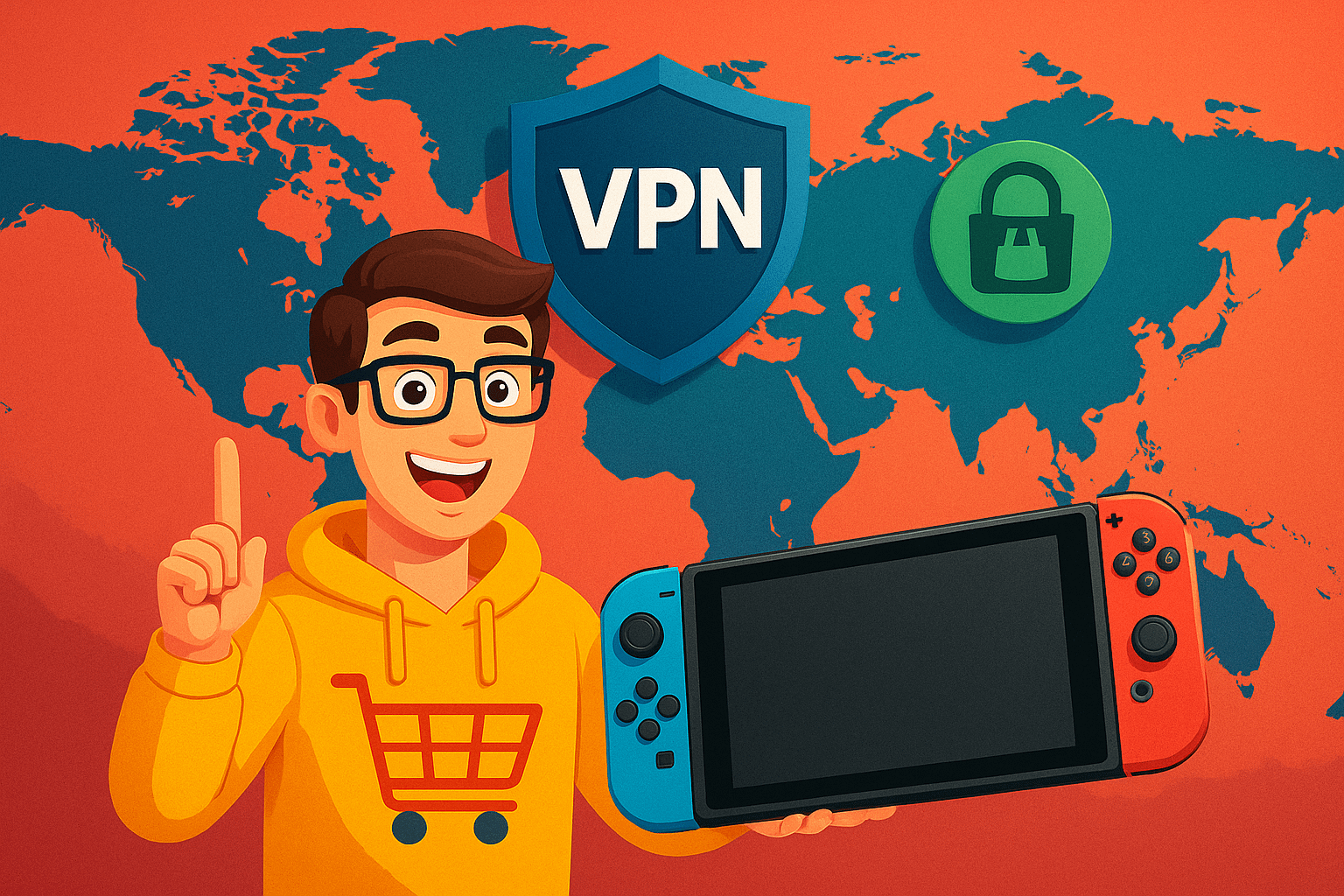
Many online consumers are discovering that what’s available—or affordable—in their country isn’t always the same elsewhere. Some promotions are regional, some websites restrict access based on IP address, and some product releases happen exclusively in specific countries.
But in today’s digital world, you don’t need a passport to explore new markets. You just need a VPN.
Why Use a VPN When Shopping Internationally?
A VPN (Virtual Private Network) allows you to mask your real location and appear to be browsing from another country. This can be useful for many reasons—some obvious, others less so. For consumers who like to compare prices globally, find regional discounts, or access services that are only offered in specific countries, a VPN becomes a valuable tool.
Think of it as a digital doorway. With it, you’re not limited to what your country offers—you can see what the world offers.
Real Example: The Nintendo Switch 2 Launch
When Nintendo announced the Switch 2, it was one of the most anticipated console launches in recent memory. Because of high demand, different countries handled the preorder process differently. In Japan, Nintendo held a lottery to determine who could buy one. In North America, access was granted via invitation emails to selected customers.
Each system was unique. Each was limited to that country’s users.
Some international fans discovered that by using a VPN, they could visit the Japanese My Nintendo Store and check if they met the eligibility criteria. Even if not all could participate directly, just having access to the Japanese product page was useful—because it showed price differences, timelines, and terms of sale that weren’t visible from other countries.
In fact, the Japanese version of the console was sold at a lower price compared to other regions. For those who were able to reserve one, the amount saved on the purchase often exceeded the annual cost of a VPN subscription.
That’s not a trick. It’s strategy.
Is This Legal?
Yes, using a VPN is legal in most countries. It’s simply a way to redirect your internet traffic through another location. You’re not breaching systems or falsifying documents. You’re just viewing the internet from another point on the map.
That said, there are smart and responsible ways to use this tool. Consumers should always follow the terms of service of each website. It’s not about avoiding laws; it’s about navigating digital limitations with clarity and awareness.
The real risk isn’t legal—it’s practical. Using a free or unreliable VPN may expose your data. Trying to force access to services that require proof of residency may get your account suspended. That’s why choosing a trustworthy VPN provider matters. And so does knowing when and where it makes sense to use it.
What Kinds of Opportunities Can a VPN Reveal?
The benefits go beyond product launches. Some regions offer games, apps, cosmetics, digital subscriptions, or collector’s items that never appear on international storefronts. Prices for the exact same item can vary significantly depending on which country’s site you visit.
A VPN can show you all those differences. It won’t buy the item for you. But it will give you the information—and access—you need to make smarter decisions as a global consumer.
With a VPN, you’re not limited to your local store. You’re accessing the entire world of e-commerce.
Should You Get One?
If you’re someone who cares about comparing global prices, accessing hard-to-find items, or participating in regional events that would otherwise be blocked for you, then yes—a VPN can be a powerful part of your consumer toolkit.
It’s not about hiding. It’s about seeing more. And acting on it.